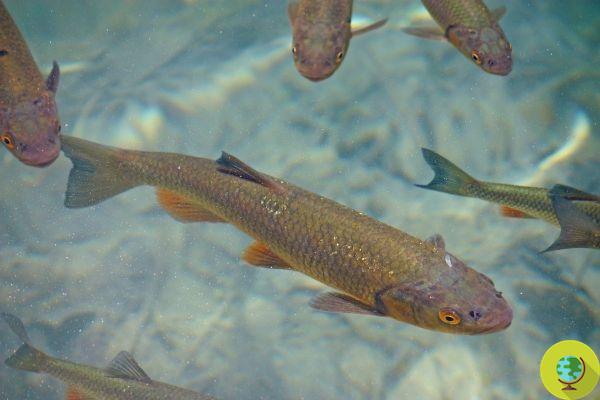
Methamphetamines that end up in the water from human waste create addiction to the other inhabitants of the aquatic ecosystem
He is about to end up run over, his mother saves himMethamphetamines that end up in the water from human waste are addictive to trout and other inhabitants of the aquatic ecosystem. This is what emerges from a new study.
A recently published study highlights how drugs like methamphetamine, which end up in the water through human discharges - those who use drugs end up contaminating the water through the spillage of domestic sewage into the waterways - can create a real addiction in fish and thus impact the natural balance of the ecosystem . According to the authors, fish have a nervous system similar to that of humans and are therefore capable of developing drug addiction just like us. The study focused, in particular, on the observation of trout - a fish that can be found on all continents; in addition, trout has already been used in the past for other research on water toxicity.
Methamphetamines are a drug that acts on the central nervous system as a stimulant. They are found in the form of crystals that can be easily dissolved in water or other liquid. The results of observations on fish that have come into contact with the drug are very similar to those seen in addicted individuals who are prevented from taking drugs.
(Also Read: Antidepressants in streams can affect shrimp behavior, the study)
Trout that have been exposed to the drug have actual withdrawal symptoms, such as anxiety, restlessness and stress, but also less ability to change their environment - suggesting that their ability to explore a new environment has been reduced in response to the drug. stress caused by withdrawal. The researchers also noted that methamphetamine-addicted fish often returned to places where they found higher concentrations of the substance (due to human discharges). This abnormal and excessive attraction of fish to places where they can 'take' drugs can be harmful to the environment according to the study: in fact, fish that try in every way to satisfy their need for drugs lose interest in feeding and reproducing. destroying the natural balance.
The stimulus to drug addiction suggested by this study represents another example of unexpected evolutionary selection for species living in environments close to those of man, as well as highlighting the ecological side of human problems linked to aquatic ecosystems.
Fonte: Experimental Biology
We still recommend:
- Cannabis, the directive has arrived: more controls, but no shop closures
- Animal tests for alcohol, tobacco and drugs: the extension rejected, they will be banned from January 1st
- Diet: Chocolate and tasty foods are addictive like alcohol and drugs


























